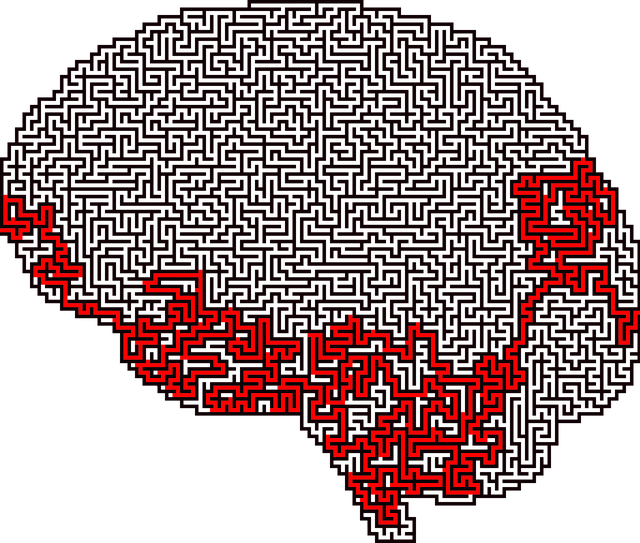Longmont Functional Neurological Disorder (LFNDT) therapy revolutionizes mental healthcare with a tailored RFM framework: Recovery, Function, and Maladaptation. This approach empowers individuals through self-esteem enhancement, stress reduction, and resilience building, combining personalized therapy with public awareness campaigns to manage symptoms and boost well-being. Using exercises like mindfulness and cognitive reframing, LFNDT strengthens neural pathways, fosters inner strength, and prevents burnout, offering a promising solution for navigating life's complexities.
“Unleashing resilience through innovative therapy practices, this article explores the power of RFM (Resilience-Focused Mindfulness) in managing neurological disorders. We delve into the transformative potential of Longmont Functional Neurological Disorder Therapy, offering a compelling case study on its effectiveness. From understanding the core principles of RFM to implementing practical exercises, and measuring success—this comprehensive guide provides insights for healthcare professionals. Discover how these strategies enhance patient outcomes and promote long-term well-being, with a special focus on the unique approach of Longmont Functional Neurological Disorder Therapy.”
- Understanding RFM and its Role in Neurological Disorder Therapy
- Longmont Functional Neurological Disorder Therapy: A Case Study
- Implementing Resilience Building Exercises: Strategies and Techniques
- Measuring Success and Continuous Improvement in RFM Programs
Understanding RFM and its Role in Neurological Disorder Therapy

Functional neurological disorder (FND) therapy in Longmont focuses on addressing complex conditions that impact a person’s movement and sensory experiences. One powerful tool within this therapeutic framework is RFM, or Recovery, Function, and Maladaptation. This approach recognizes the intricate relationship between an individual’s recovery journey, their ability to perform functional tasks, and the negative patterns or maladaptations that can hinder progress.
By understanding RFM, therapists tailor interventions to support clients in various ways, including enhancing self-esteem improvement and implementing stress reduction methods. The goal is to empower individuals affected by FND to navigate their unique challenges, promoting a sense of control and resilience. This personalized approach, combined with public awareness campaigns development, can significantly contribute to managing symptoms and improving overall well-being for those navigating neurological disorders.
Longmont Functional Neurological Disorder Therapy: A Case Study

In a notable example of innovative therapy, Longmont Functional Neurological Disorder (LFNDT) Therapy has emerged as a game-changer in the field of mental health care. This approach, tailored to individuals grappling with neurological disorders, focuses on cultivating resilience and enhancing overall well-being. By combining specialized exercises designed to strengthen neural pathways, LFNDT offers a holistic strategy that complements traditional therapy methods. The program is meticulously crafted to address the unique challenges faced by those with functional neurological disorders, aiming to restore cognitive function and improve quality of life.
Through a combination of tailored activities and mental wellness coaching programs, participants develop effective self-care routines. This includes techniques to foster positive thinking, which serves as a cornerstone in managing symptoms and promoting mental resilience. By participating in LFNDT, individuals not only gain practical tools for navigating their daily lives but also discover the power of their own minds to adapt and overcome adversity. This case study highlights the potential of such targeted interventions in revolutionizing mental health support.
Implementing Resilience Building Exercises: Strategies and Techniques

Implementing Resilience Building Exercises involves strategic planning and a multi-faceted approach tailored to individual needs. For those seeking help with Longmont Functional Neurological Disorder Therapy, incorporating resilience exercises is a game-changer. These exercises are designed to strengthen mental fortitude, fostering adaptability in the face of life’s challenges. Techniques can range from mindfulness practices that enhance emotional regulation to cognitive reframing strategies that promote positive thinking.
Incorporating self-care routines and regular practice of these techniques can significantly contribute to better mental wellness. The Longmont Functional Neurological Disorder Therapy approach encourages clients to develop a consistent self-care routine, integrating activities that support physical health alongside emotional well-being. Additionally, consider engaging in creative outlets or physical activities known for their stress-relieving benefits as part of your resilience-building toolkit. This holistic strategy complements the Mental Wellness Podcast Series Production by providing actionable steps for listeners to improve their mental health through proactive self-care and emotional regulation skills.
Measuring Success and Continuous Improvement in RFM Programs

Measuring success and continuous improvement are vital aspects of any effective RFM program, including those focusing on Longmont Functional Neurological Disorder Therapy (LFNDT). Success is not merely about achieving specific outcomes but also about fostering inner strength development and burnout prevention. By incorporating compassion cultivation practices, participants can enhance their resilience and overall well-being.
Regular evaluation allows therapists and practitioners to tailor exercises for individual needs, ensuring that each session contributes to the client’s progress. This data-driven approach enables them to identify areas of improvement, track advancements, and make informed adjustments. Continuous feedback from participants is invaluable in refining the RFM program, making it more responsive to the unique challenges and strengths within the group. Through such iterative processes, LFNDT can optimally support individuals in cultivating resilience and navigating life’s complexities effectively.
The implementation of RFM, as demonstrated through the case study of Longmont Functional Neurological Disorder Therapy, offers a promising approach to enhancing resilience and managing neurological disorders. By combining evidence-based strategies with personalized exercises, individuals can improve their ability to cope with stress and adversity. Measuring success in RFM programs is crucial for continuous improvement, ensuring that these interventions remain effective and tailored to each patient’s unique needs. As the field progresses, further research and refinement will continue to shape this innovative therapy, providing hope and improved quality of life for those navigating neurological challenges.














